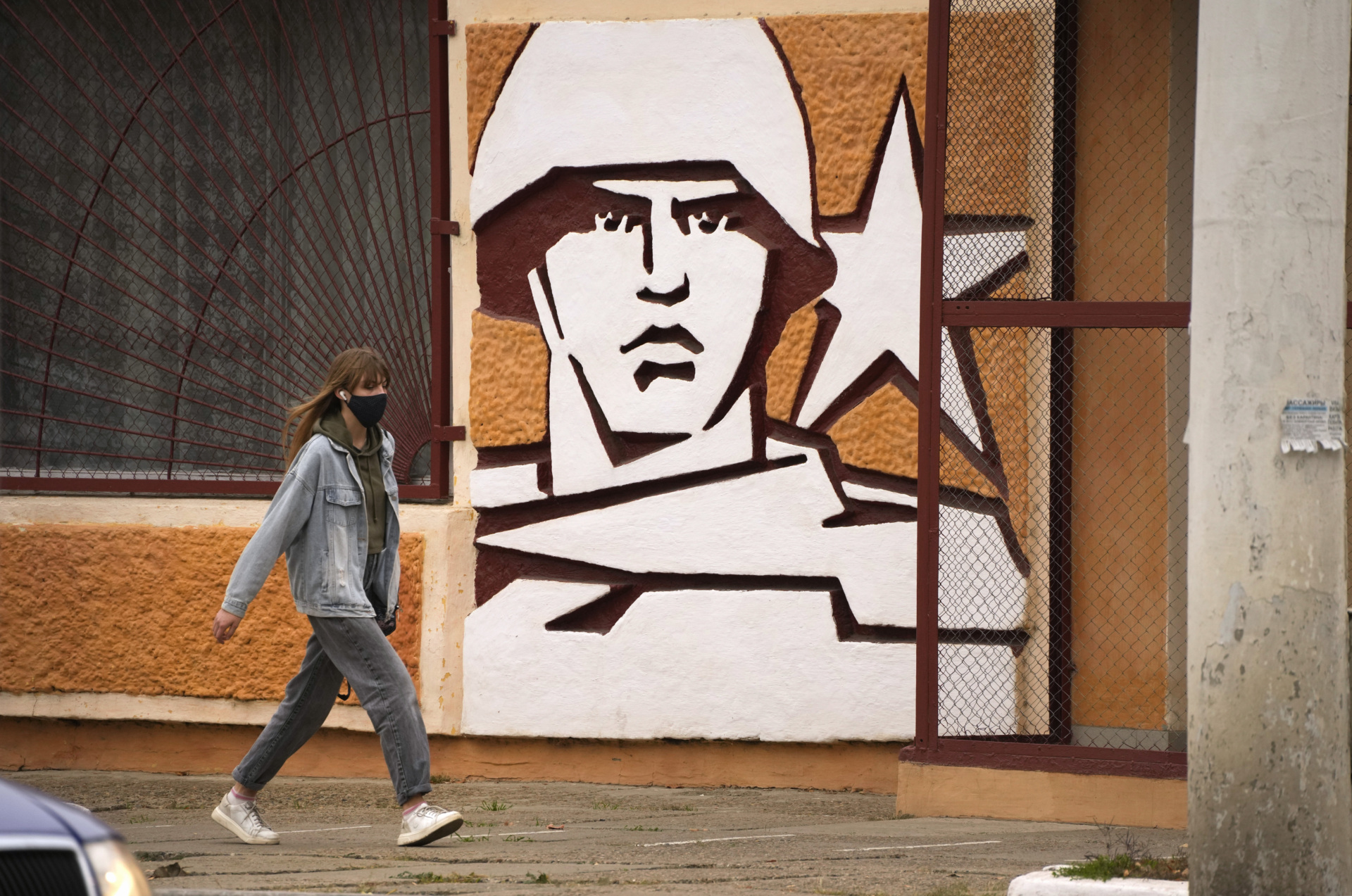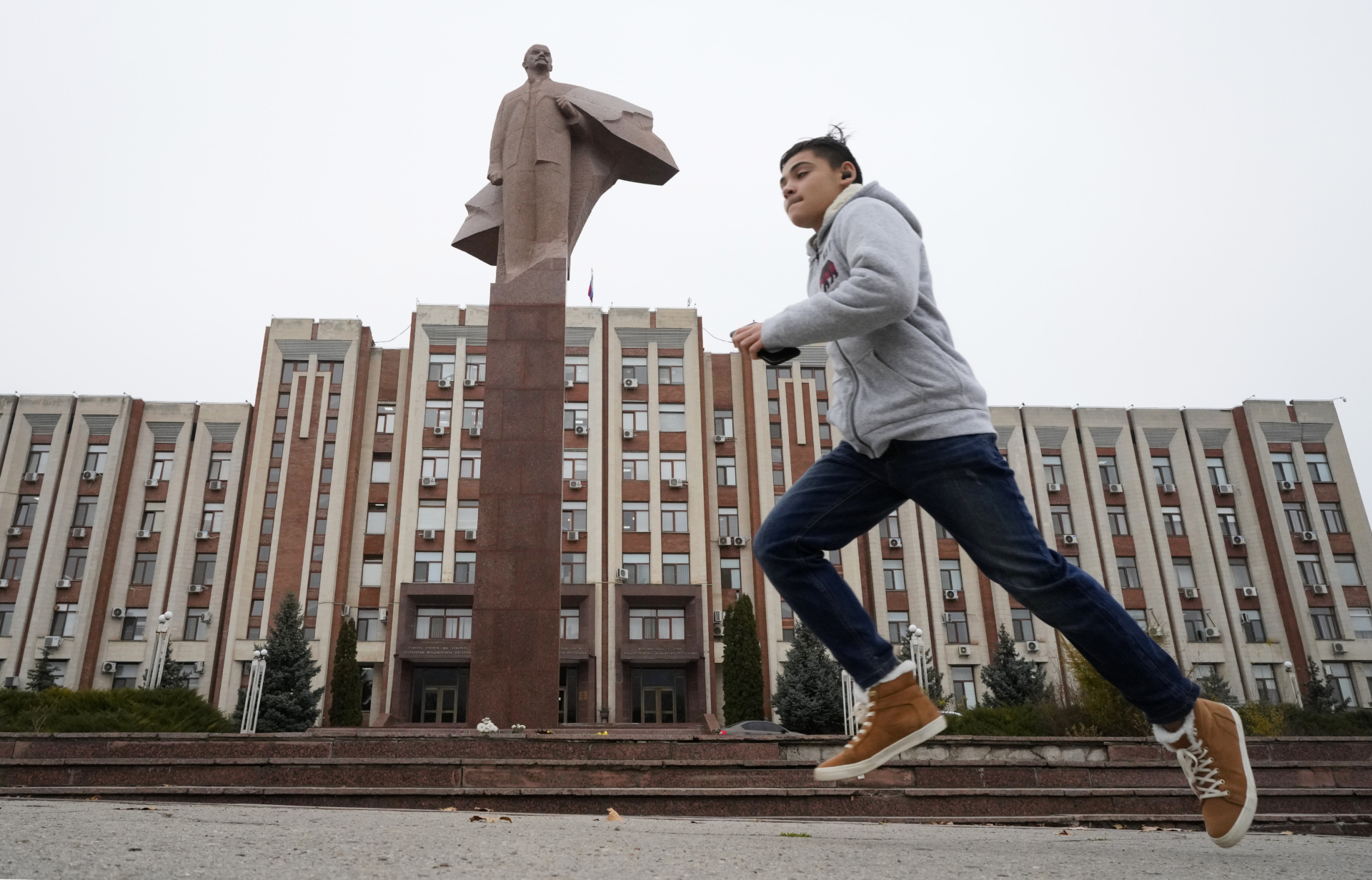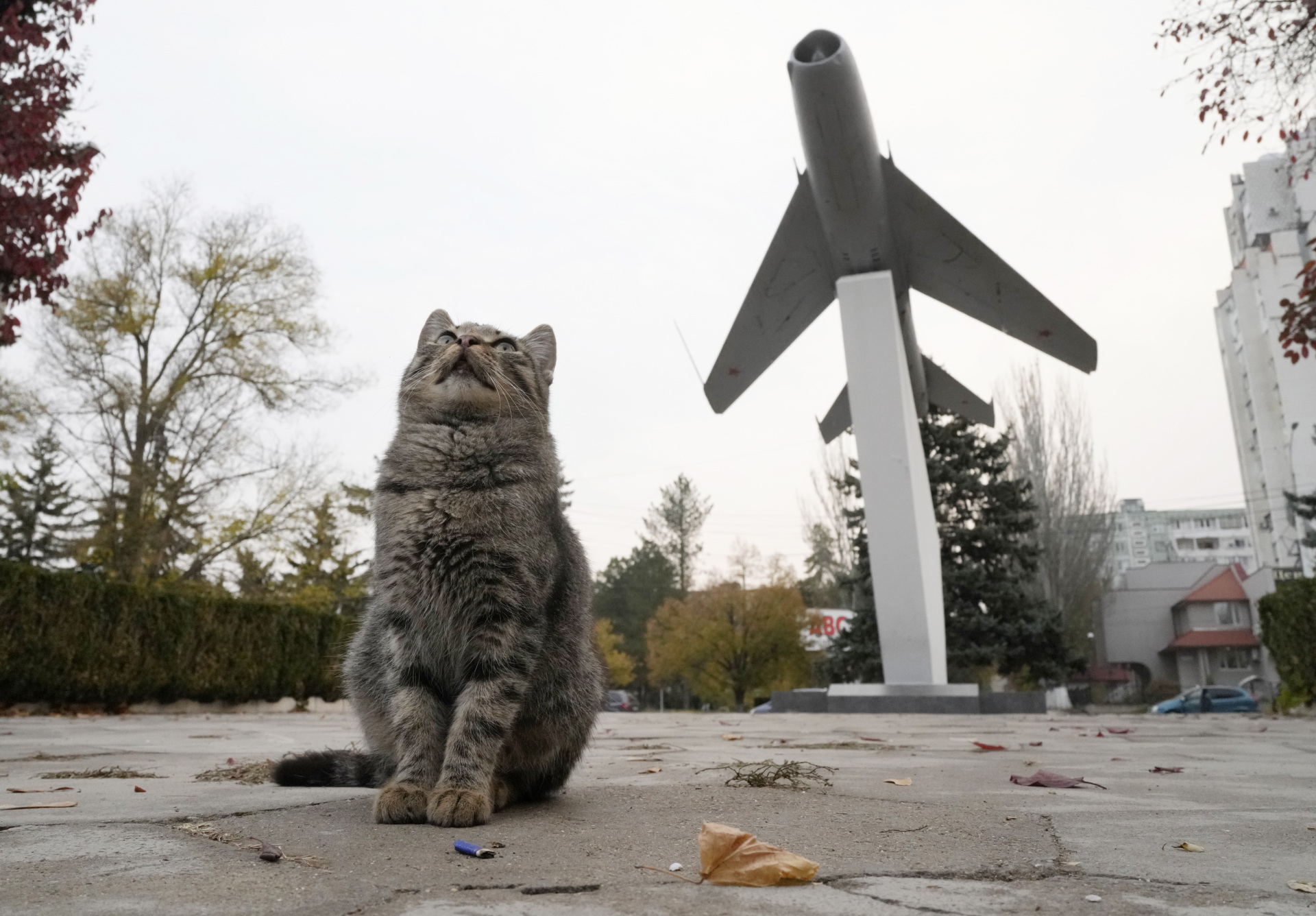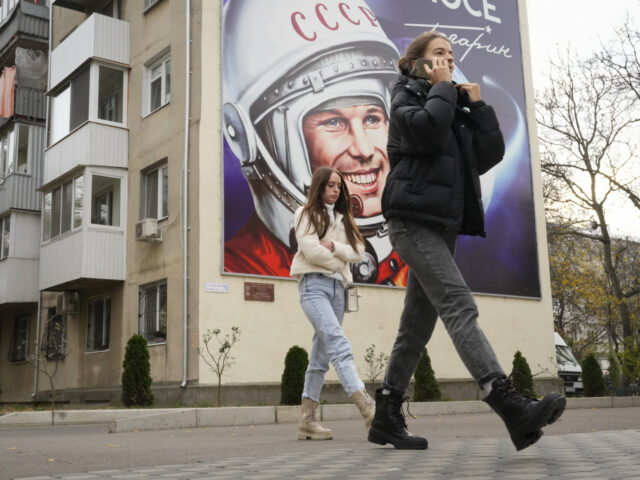Transnistria, a linguistically and ethnically distinct sliver of land to the west of Ukraine which has been a defacto if unrecognised breakaway republic since 1990 is asking Russia to step in for protection from the threat they claim to feel from pro-European Moldova.
Officials in pro-Russian separatist Transnistria voted at the Congress of Deputies on Wednesday to ask Moscow for protection from Moldova, from which the country split in 1990 and fought a war of independence with until 1992 amid the collapse of the Soviet Union. The Transnistrians claim Moldova is attempting to use financial pressure to force it to reunite and complains of a sharp deterioration in relations this year, accusing Chișinău of trying to destroy their economy.
Transnistria is internationally seen as being inside the borders of post-Cold War Moldova, and has never been recognised as a nation by any other country — not even Russia. Nevertheless, in practice the 1,600-square mile breakaway has been essentially ‘self-governing’ under a ceasefire with Moldova and in a legal grey zone for over 30 years.
While Moldova itself is predominantly ethnically Moldovan-Romanian, the small Transnistrian region has a sizable Russian ethnic minority. The call for assistance to Moscow to protect a Russian minority from alleged discrimination by a pro-European Union government will naturally trigger comparisons to the early days of the Ukraine war in 2014, when ‘little green men’ appeared in eastern Ukrainian regions, ostensibly to protect Russian minorities from Kyiv.
Indeed, it is possible Transnistrian authorities will take calling another referendum on integration with Russia as the next step, again a progression reminiscent of the events surrounding Russia’s annexation of Crimea in 2014.

FILE – A woman walks past the Operational Group of Russian Forces headquarters in Tiraspol, the capital of the breakaway region of Transnistria, a disputed territory unrecognized by the international community, in Moldova, Nov. 1, 2021. (AP Photo/Dmitri Lovetsky, File)

A boy runs past a statue of Soviet Union founder Vladimir Lenin in Tiraspol, the capital of the breakaway region of Transnistria, a disputed territory unrecognized by the international community, in Moldova, Monday, Nov. 1, 2021. (AP Photo/Dmitri Lovetsky)

A cat sits near a Soviet era MIG-19 military jet installed as a monument in Tiraspol, the capital of the breakaway region of Transnistria, a disputed territory unrecognized by the international community, in Moldova, Monday, Nov. 1, 2021. (AP Photo/Dmitri Lovetsky)
Transnistria has also featured in the Ukraine war before, with Western nations accusing Russia of defacto occupying the region already, and Russia accusing Ukraine of plotting to invade Transnistria itself. Observing the coming vote that passed today, the Ukrainian government has condemned any moves by Moscow to move the region of Moldova closer to the Russian orbit, accusing the Kremlin of spreading disinformation about Transnistria, and affirming its position that the area is a “integral, internationally recognized territory of Moldova”.
There are no Russian “peacekeepers” in Transnistria but “occupiers”, Ukraine affirmed, and said today’s vote is an attempt to “create another point of tension on the border with Ukraine” and undermine Moldova’s attempt to join the European Union.
Agence France Presse reports the Transnistrian assembly had voted in favour of a resolution to call on Russia to “implement measures to protect Transnistria in the face of increased pressure from Moldova”. Russian state media was also quick to publish material on the vote, noting “Transnistrian leader” Vadim Krasnoselsky asked for support on the strength that “more 220,000 Russian nationals reside in the unrecognized breakaway republic” and claiming “Russian peacekeeping” has been so successful in the past.
The motion’s wording read, Moscow states: “Transnistria will persistently fight for its identity, the rights and interests of the Transnistrian people and will not give up on protecting them, despite any blackmail or external pressure.”
Nevertheless, Russia has never officially recognised Transnistrian sovereignty and has turned down previous Transnistrian requests for it to be absorbed into Russia, as Moscow has attempted with Crimea, Donetsk, and Luhansk in Ukraine. While Russian President Vladimir Putin evidently considers Transnistria — and possibly all of Moldova — a rightful part of the “Russikiy Mir” (Russian world, or sphere of influence), as noted by the Institute for the Study of War, Transnistria’s presence as a brake on Moldova’s European Union membership aspirations means it is useful as it is, in limbo.
It is conceivable Putin recognises becoming more involved in Transnistria may further push Moldova towards Europe, as was the case with Ukraine in the last decade. Nevertheless, the strongly pro-Western Moldovan government has recently clearly signalled it does not consider part of its territory being occupied by a small number of Russian troops a roadblock to its ambitions, citing Western Germany’s interaction with the European community in the 1980s before reunification with the East in the 1990s.
Then again, the Kremlin may also consider a fresh crisis on the European Union’s eastern borders to divide its attention and political energy desirable. Now as ever, second-guessing Moscow’s thinking and intentions is not a game for the faint-hearted.
Indeed, Moldova is, like other post-Soviet Eastern European and Balkan states, on a pathway to European Union membership. This, like Ukraine’s journey to the same, has been claimed as a potential flashpoint for tension with Moscow for years, and the parallels between Russian anger over Ukraine and Moldova drifting Westwards cited in 2014.
EU President Ursula von der Leyen said last year that Moldova should be absorbed into the Union to prevent Russian influence in the region. She said: “Can we imagine the European Union will be without Ukraine, without Moldova, without the Western Balkans? And those parts of Europe are under the influence of Russia or China? Impossible… So, the direction of travel is clear. And therefore, now we have to start to think about how are we making sure that Europe is whole, that those countries are part of the European Union.”

COMMENTS
Please let us know if you're having issues with commenting.